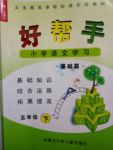题目内容
For most of us, the purpose of the holidays is to bring peace, love, and goodwill towards all. Yet, for many, the holiday season often means stress, fatigue, pressure, disappointment and loneliness.
These feelings, often known as the “holiday blues”, may be even more prevalent, due to the emotional turmoil (波折) of the past few months, not to mention the unsteady economy. Experts say even the more ritual tasks of shopping, decorating, late-night parties, cooking, planning and family reunions can be holiday stressors. In addition, the psychological phenomenon known as seasonal affective disorder, or SAD, may bring a specific type of depression related to winter’s shorter days and longer nights.
“Certainly just because it’s the holidays doesn’t mean people are going to be happy,” says Dr. Doug Jacobs of
And with family reunions becoming less frequent events over the years, there is now the added pressure of getting just one chance to get it all right. “Families are much more different now. The disappointment and sense of alienation that often results from family gatherings, is actually a realization that the fantasy is not met.” says John Stutesman, a clinical psychologist at Northwestern Memorial Hospital in
Still, say experts, the blues should be addressed. The most essential step, says Stutesman, is for the individual to acknowledge their feelings and the reason for their withdrawal. “Denial will only compound the stress they’re feeling.” Stutesman recommends people do things that are normally comforting in order to get a handle on the holiday stress. “If they’re feeling a little blue, they should try to do things personally satisfying for them. Maybe this is exercise, cooking, reading a book, or massage.” Stutesman also advises that sometimes “avoidance is actually not such a bad idea.” In some situations, fulfilling social obligations may be self-destructive when the best thing may be to just stay home. The healthy choice has to do with taking care of oneself.”
76. What is the “holiday blues”?
A. The feeling of disappointment and sense of alienation in family reunions.
B. Feelings such as stress, fatigue, disappointment and alienation in holiday.
C. Feelings such as peace, love, and goodwill in holiday.
D. The psychological phenomenon known as seasonal affective disorder.
77. Which of the followings is not the reason that causes the “holiday blues”?
A. Emotional turmoil of the past few months.
B. Summer’s longer days and shorter nights.
C. Unsteady financial condition.
D. Ritual tasks of daily life.
78. Who are more likely to feel blue in holiday according to the passage?
A. Those who are fond of family reunions.
B. Those who are dissatisfied with their relatives.
C. Those who feel frustrated in their work.
D. Those who feel hard to take care of themselves.
79. If you are feeling blue, what can you do to relieve the stress according to the passage?
A. Deny that you are in low spirits.
B. Acknowledge the feeling and let it be.
C. Stay at home and do nothing.
D. Do exercise, cooking, reading or massage.
76. B 77. B 78. C 79. D

 小学学习好帮手系列答案
小学学习好帮手系列答案 小学同步三练核心密卷系列答案
小学同步三练核心密卷系列答案Mary was seven years old. Her parents recently moved to a new town, and so Mary was going to a 36 school, which was a few kilometers from the house they lived in now. A school bus going around picked up 37 every morning and brought them back to their 38 every afternoon, and as both of Mary’s parents 39 to go to work, she always went on this bus.
Mary’s parents always 40 their alarm clock for seven o’clock so that none of them would be 41 . But one morning the alarm 42 to go off, and it was not until a quarter past eight that Mary’s mother suddenly 43 , looked at the clock and said, “What’s ever happened to that clock?” and then 44 into Mary’s room to wake her up.
“I’m sorry, dear,” she said, “ 45 you’ll have to wash and dress very quickly, have an even 46 breakfast and then I’ll 47 you to school on my way to the office.”
“But how can you find the 48, Mum?” Mary said, “You’ve been to school only once.”
“Yes,” her mother answered, “but you’ve done the 49 several times now on the bus, so you can be my guide to get there, can’t you?”
“Oh, yes,” said Mary, “I suppose so.” She washed, and 50 and had a quick breakfast, and then they set off. Mary told her mother to turn each time they came to a place she 51 .In this way she made her mother drive round most of the town 52 they got to her school. When they arrived, her mother saw that it was not really very far from her house.
“Why ever did you make me go such a long way round, Mary, instead of the most 53 way?” her mother asked her.
“Well, Mum,” answered Mary, “it was because I didn’t know 54 else to get here. That’s the way our bus always goes to 55 the other children to school.
| 【小题1】 |
|
| 【小题2】 |
|
| 【小题3】 |
|
| 【小题4】 |
|
| 【小题5】 |
|
| 【小题6】 |
|
| 【小题7】 |
|
| 【小题8】 |
|
| 【小题9】 |
|
| 【小题10】 |
|
| 【小题11】 |
|
| 【小题12】 |
|
| 【小题13】 |
|
| 【小题14】 |
|
| 【小题15】 |
|
| 【小题16】 |
|
| 【小题17】 |
|
| 【小题18】 |
|
| 【小题19】 |
|
| 【小题20】 |
|